Ah, Brisbane – sun, surf and a killer smile (we hope). If you’re daydreaming about a flawless grin but cringing at the price tag, you’re not alone. Dental veneers can transform chipped, discoloured or uneven teeth into a movie-star smile, but at what cost? In 2025, veneer prices in Brisbane typically run from a few hundred bucks up to a couple thousand per tooth, depending on the type and your goals.
This guide breaks down what “affordable veneers” really means in Brisbane, what influences the price, and how to get the best value for your investment in a brighter smile. We’ll cover the ins and outs of veneer materials, average price ranges in Brisbane, and money-saving tips – all in plain Aussie English. Ready to flash those pearly whites without fainting at the bill? Let’s dive in.
What Are Veneers (And Why Do You Want Them)?
Veneers are wafer-thin, custom-made shells (usually porcelain or composite resin) that sit on the front surface of your teeth. Think of them like a tiny helmet or a coat of paint that perfects your tooth’s appearance.
They can instantly cover up stains, chips, gaps or slightly crooked teeth, giving you a picture-perfect grin. (In fact, many Brisbanites describe them as a “Hollywood smile” in a shotglass economy.) Veneers aren’t just cosmetic : they also add a layer of protection to worn or cracked teeth.
In Brisbane’s culture-conscious scene, a bright white smile is in vogue – thanks to influencers and selfie culture – but so is being smart with your cash. You’ll often hear people ask, “Are veneers really worth it?” The good news: with veneers, instant confidence is almost a guarantee, and you get to keep your natural tooth structure (porcelain veneers remove only a sliver of enamel).
The bad news (for your wallet): “perfecting” your teeth does cost a bundle. However, as we’ll see, there are more wallet-friendly options if you’re savvy about it.
Types of Veneers & How They Affect Price
Not all veneers are created equal. In Brisbane you mainly have two big players (plus a niche third): porcelain veneers and composite resin veneers. Each type has its own pros, cons and price tag:
- Composite Resin Veneers: These are made from a tooth-coloured resin (the same stuff as white fillings) that’s applied and sculpted directly onto your teeth in the dentist’s chair. It’s usually a one-visit deal. Composite veneers are the budget-friendly option – think $300–$600 per tooth in Brisbane. They look natural, and you can even fix chips later without replacing the whole veneer. The tradeoff? They last a shorter time (around 5–8 years with good care) and can stain or chip easier than porcelain.
- Porcelain Veneers: Made in a lab from ultra-thin ceramics, porcelain veneers feel and look ultra-realistic (they mimic the translucency of natural enamel). Getting these usually takes 2–3 visits (one to prep your teeth and impressions, and one to fit the custom veneers). They’re pricier – in Brisbane you’ll commonly see quotes starting at around $1,000–$1,500 per tooth for basic porcelain veneers. With high-end labs or premium materials (like refined dental porcelain or zirconia), the price can climb toward $2,000–$2,500 per tooth. The upside? Porcelain veneers can last 10–20+ years if cared for, and resist staining far better. As the Brisbane Smile Boutique dentists note, porcelain is stronger and more durable, but that strength (and lab work) is why “porcelain veneers are generally more expensive than composite”.
- No-Prep (Ultra-Thin) Veneers: A newer trend – brands like Lumineers – are so thin they often need almost no tooth shaving. They ride a line between porcelain and composite. Prices are often in the $900–$2,000+ per tooth range (based on US luxury market pricing, roughly similar in AUD). These can sound appealing, but not everyone is a candidate (if your teeth need a lot of correction, they may not stick well). We’ll focus on composite vs porcelain since those cover the majority of “affordable” cases.
Ultimately, material choice drives cost. Composite = cheaper, same-day smile. Porcelain = pricier, longer-lasting grin. In Brisbane you’ll often hear: “Porcelain wins in the looks department, but composite is kinder to your hip pocket”.
What Affects Veneer Prices in Brisbane?
Even within each type, prices can bounce around quite a bit. Several factors influence how much you’ll actually pay:
- Number of Teeth Needing Veneers: Obviously, one veneer costs less than eight veneers. Many dentists offer sliding-scale deals if you commit to a set (for example, some Brisbane clinics package 6–10 veneers at a slightly lower per-unit rate). For instance, one clinic quoted $7,999 for 10 veneers ($799 each) when combined with whitening, versus about $1,000 each if you only get a couple.
- Case Complexity and Pre-Treatments: If your teeth need prep work (like root canal, gum reshaping, fixing decay) before veneers can go on, that ups the bill. Similarly, if your teeth are badly misaligned, you might need braces or whitening first. Each extra procedure adds cost.
- Dentist’s Expertise & Laboratory Fees: A highly sought-after cosmetic dentist who handcrafts veneers with top labs will charge more than a general dentist using more basic labs. Brisbane has a range – from boutique aesthetic practices to budget chains. As the Smile Dental Cover guide notes, “Reduced and capped fees” apply if you go through certain networks, but private fees without insurance can be steeper.
- Material and Quality: Within porcelain veneers, for example, there are choices of dental ceramic (some very high-end porcelains like Empress or Emax). Higher grade materials cost more. Composite veneers have fewer material tiers, but top-quality composites and techniques will cost a bit more.
- Location & Overheads: Generally, CBD clinics in Brisbane or the inner suburbs charge more than practices in outer suburbs or satellite towns. Higher rent and wages factor into the price. That said, major-city Brisbane isn’t as eye-watering expensive as Sydney or Melbourne – a fact supported by surveys. One analysis found that Brisbane’s direct (adhesive) veneer price starts around $360 and an indirect porcelain veneer at about $1,200+, slightly lower than Sydney’s top end.
- Economic Factors (Inflation): Like everything, dental costs tend to rise over time. In Australia, the cost of dental services has climbed significantly over the past decade. The ADA notes that by 2022 the fee schedule had crept up by a few percent annually. This means 2025 prices could be a bit higher than 2022’s.
In short, “how much do veneers cost?” isn’t a one-size answer. Expect to research multiple quotes. Generally, Brisbane patients find the range something like this: composite veneers $300–$600 per tooth, basic porcelain $1,000–$1,500, and premium porcelain $1,800–$2,500+ depending on factors. The Australian Dental Association (ADA) even mentions porcelain veneers can top out around $2,036 per tooth in their fee guidelines.
Brisbane Veneer Cost Crunch: Table & Examples
To make it clearer, here’s a quick look at typical per-tooth costs in Brisbane (2025 prices):
| Veneer Type | Average Price/Tooth (Brisbane 2025) | Lifespan (under good care) | Key Notes |
|---|---|---|---|
| Composite Resin Veneer | $300 – $600 | ~5–8 years | Quick (single visit) and cheaper, but can chip/stain faster. |
| Porcelain Veneer (entry) | $1,000 – $1,500 | ~10–20 years | More durable/natural; requires lab work & 2–3 visits. |
| Porcelain Veneer (premium) | $1,800 – $2,500+ | 15+ years (or lifetime) | Uses top-tier materials; the “investment” level for maximum realism. |
| No-Prep (Lumineers, etc.) | $900 – $2,000+ | ~10+ years (with caveats) | Ultra-thin; less tooth prep but not for every case. |
Table: Comparison of veneer types and costs in Brisbane.
As an example of package pricing, a Brisbane clinic quoted $6,600 for 6 porcelain veneers ($1,100 each) and $10,000 for 10 veneers ($1,000 each). Another offered $7,999 for 10 veneers (about $800 each) if you also get in-chair whitening and a night guard. Bulk deals like this can significantly lower the per-tooth cost, but remember it’s still a big upfront sum.
How to Save on Veneers in Brisbane
While veneers aren’t “cheap” per se, there are ways to make them more affordable:
- Shop Around & Negotiate: Get quotes from a few reputable Brisbane dentists (Sydney or interstate aren’t necessary – you want someone local). Mention if you’ve seen lower prices elsewhere; some clinics may match or beat competitor pricing.
- Ask About Payment Plans: Many dental practices offer interest-free finance or payment plans (e.g. Afterpay, Zip, Humm) to spread the cost. As one Brisbane dentist points out, you can often pay $50–$100 per week to chip away at your veneers bill. This won’t make them cheaper, but it makes budgeting easier.
- Check Insurance: In Australia, veneers are considered cosmetic, so health funds usually won’t cover them – unless the procedure is deemed necessary (e.g. after trauma or decay). It’s worth asking your insurer about “bonding” vs “veneer” codes, but plan on paying out of pocket for the lion’s share. (The Smart Way: call your insurer before committing.)
- Consider Composite First: If you’re on a tight budget, start with composite veneers or bonding. For example, composite dental bonding can fix chips and discoloration at roughly $300–$700 per tooth – often much less than porcelain. It may not last as long, but you can upgrade to porcelain later. Some Brisbane dental clinics even advertise “composite smile makeovers” as quick fixes.
- Look for Promotions: Occasionally, dental clinics run specials on cosmetic work or package deals (e.g., discounts on multiple units). Keep an eye on local dental newsletters or websites for limited-time offers (but always vet the practice).
- Dental Schools: Brisbane has dental universities (like University of Queensland Dental School). Treatments by supervised students can be discounted – though veneers might be too advanced; still, basic cosmetic treatments (like whitening before veneers) might be cheaper there.
Veneers vs Other Options
Veneers are a big investment, so let’s quickly compare them to other smile-enhancing options:
- Teeth Whitening: If your main issue is discoloration, professional whitening (Zoom, laser, etc.) is far cheaper (~$400–$700). But whitening won’t fix chips or shape. Think of it as one tool in your smile toolbox.
- Composite Bonding: Very similar to composite veneers, but usually done on fewer teeth or smaller areas (for minor chips or gaps). It’s about as affordable as composite veneers (~$300 per tooth or less) and often completed in 1–2 visits. The result isn’t as permanent as porcelain, but it’s a stepping-stone.
- Crowns: Dental crowns (caps) cover an entire tooth. They’re used more for strength after a root canal or big filling. A crown may be slightly more expensive (around $1,000 each for a porcelain-fused-to-metal) than a veneer, and you lose more natural tooth. Crowns are not usually used purely for cosmetic reasons unless the tooth is otherwise very damaged.
- Aligners/Braces: If your main issue is crooked teeth, invisible braces (Invisalign) can align your smile. Cost varies (~$3,000–$9,000 for a full treatment in Brisbane) but fixes spacing/tilt. This won’t whiten or fix chips, so sometimes people do whitening or bonding AFTER orthodontics. It’s another route, not a direct substitute for veneers.
- Dental Tourism: Tempting as it sounds, heading overseas to save on veneers is risky. Lower prices in places like Thailand (where a veneer can be as cheap as $135–$500) don’t account for travel, time, communication issues or aftercare. For many, the stress isn’t worth it.
Wrapping Up and Your Next Steps
In 2025 Brisbane, an “affordable” veneer typically means choosing composite or bargain-priced porcelain, and strategically planning your treatment. Composite veneers give you that instant glow for as little as a few hundred bucks per tooth, while porcelain might start around $1,000+. Key insights:
- Composite is cheaper (~$300-$800/ tooth) and quick but less durable.
- Porcelain costs more (~$1,000-$2,000/ tooth) and takes longer to make, but looks more natural and lasts longer.
- ADA figures remind us that prices can climb – up to ~$2,000 per veneer at the top end.
- Brisbane-specific data suggests prices here are slightly lower than Sydney’s highs – think “starting around a few hundred for chairside work, to about $1,200+ for lab-made veneers”.
Ultimately, whether veneers feel affordable depends on your budget and priorities. If a fabulously straight, white smile is something you really want (and need fast), veneers can be worth it. Otherwise, mix and match cheaper solutions (whitening, bonding, aligners) to spread out costs.
Next steps: Chat with a trusted Brisbane dentist. Ask about dental payment plans or practice membership offers. Many dentists offer a free consult to discuss your smile goals. Don’t hesitate to say you’re shopping around for the best deal – they understand cost is a factor. And above all, get quotes in writing. Remember, as one Brisbane cosmetic dental site notes: “the price of porcelain veneers in Brisbane typically ranges from $1,000 to $2,500 per tooth”, so it pays to compare.
Ready for that confident grin? Start by booking a consultation (some dentists offer a free or low-cost assessment). With up-to-date 2025 pricing and these tips in hand, you’ll be equipped to find affordable veneers in Brisbane without breaking the bank. Here’s to flashing that smile around town (and maybe catching a few more fish at the Gap lookin’ good)!
Sources: Current dental fees and industry reports were reviewed, including data from the Australian Dental Association and Brisbane-area practices, among others. These informed the price ranges and factors discussed above. (Local clinics’ published fees were also referenced to give real Brisbane context.)
FAQs about Veneer Costs in Brisbane
What’s the cheapest way to get veneers in Brisbane without compromising quality?
If you’re chasing the most budget-friendly smile upgrade, composite veneers are your best bet. In Brisbane, you can find them for around $300–$600 per tooth. They’re sculpted directly onto your teeth in one session – quick, affordable, and no lab fees. Just keep in mind: they don’t last as long as porcelain and may stain more easily. For many people, composite is a great “starter veneer” if porcelain’s out of reach.
Are veneers in Brisbane cheaper at a cosmetic clinic or general dental practice?
Generally, cosmetic clinics tend to be more expensive because they use high-end labs, premium materials, and often include extras like smile design consultations. General dental practices may offer more competitive rates – sometimes up to 20% less – especially for composite veneers or simple cases. However, it’s not always black and white. Some general dentists in Brisbane offer cosmetic packages that rival boutique pricing, so it’s worth comparing both.
Do any Brisbane dentists offer payment plans for veneers in 2025?
Yes – most do. Interest-free payment plans (like Afterpay, Zip, or in-house options) are widely available across Brisbane clinics in 2025. You might pay as little as $50–$100 a week, depending on how many veneers you’re getting. Just be sure to read the fine print – while the payments might be flexible, not all plans include follow-ups, whitening or repairs, so always ask what’s covered.
Is it really worth paying more for porcelain veneers over composite in Brisbane?
That depends on your priorities. If you want a natural, long-lasting result, porcelain is worth the extra cash. It looks more realistic, resists stains, and can last 10 to 20+ years with proper care. Composite is cheaper upfront and easier to fix, but usually lasts around 5–8 years. In Brisbane, many people start with composite to test the waters, then upgrade to porcelain when budget allows. So yes, the splurge can be worth it – just not always right away.

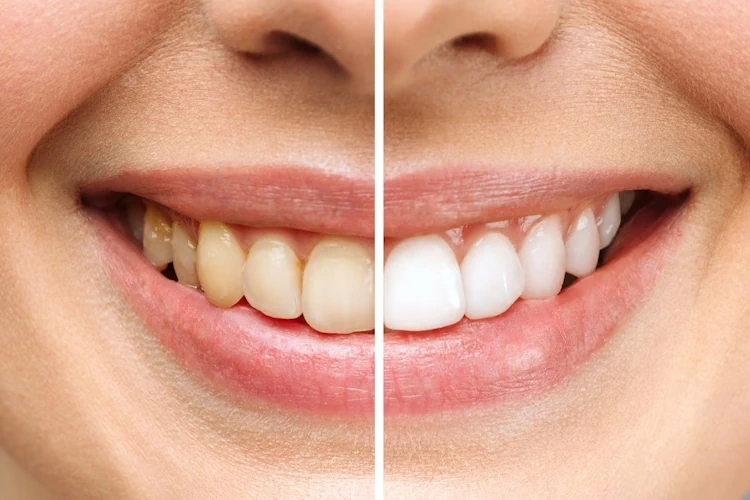

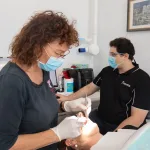
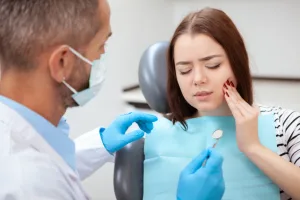
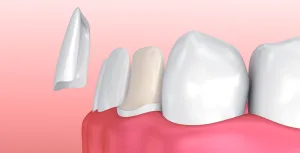
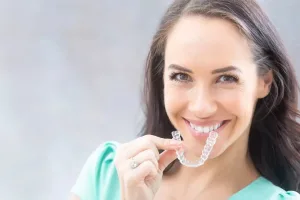
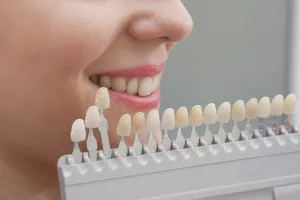
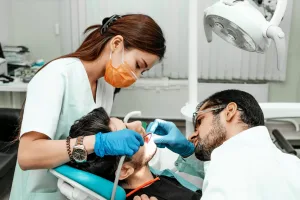
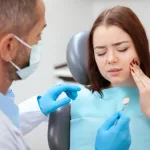
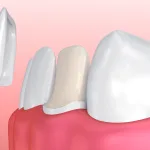
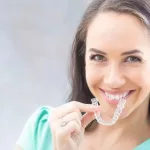
Add comment